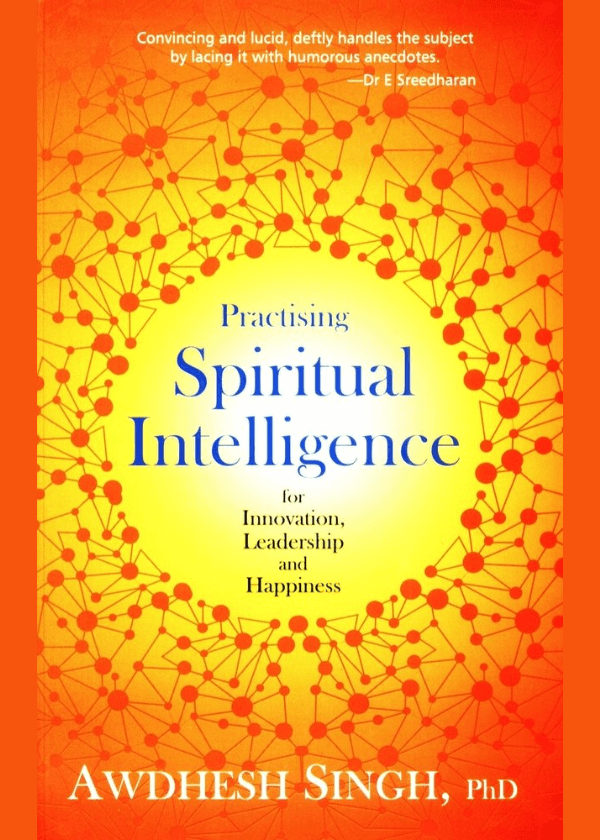Practising Spiritual Intelligence: For Innovation, Leadership & Happiness
By Awdhesh Singh
Spiritual Intelligence refers to the intuitive knowledge of the self, others, situations and techniques to achieve the desired objectives. Hence it can be called the soul of all intelligences. Spiritual Intelligence enhances our power to inspire others by transforming their souls in such a way that their desires and aspirations are aligned in a single direction. Soul is beyond all reason and intellect. It is, in fact, the source of mind and intellect. One who knows his soul knows the universe, since soul is nothing but the microcosm of the universe. This book on Spiritual Intelligence by Dr. Awdhesh Singh explains this body-soul continuum and suggests practical steps to evolve through the body-senses-mind-intellect to reach our soul. Welcome to this new path of spiritual evolution.
“Convincing and lucid, deftly handles the subject by lacing it with humorous anecdotes.” – Dr. E Sreedharan
Reviews From Amazon
Excellent book for youths
Only courageous and experienced writers can write such books in 21st century.. Thank u Awdhesh sir.
A book ‘Secret Red book of leadership’ written by same writer is very realistic book. Hats off writer.
Very engaging book on spiritual intelligence
I want to thanks a million ton to Dr. Awdhesh singh for writing such a wonderful book..i cant resist myself to read the book..very engaging..in my very busy schedule i spent time and it was worth. I m reading this book second time and going to order few other books from the same author.
Nicely written with real life examples
I m beginner in spiritual knowledge and this book is very helpful for me to understand the concepts. It invoked the spiritual interest in me. This book makes an eye opening for me. I suggest this book to all, especially for the youngsters.
Exploring spirituality in simple terms
It’s great experience to read this book. Most recommended book to those who want to know the meaning of spirituality at easiest possible way. Heartfelt thanks to Awdhesh Singh for the inspiration.
This Book is for strengthening your soul
If your soul is dead, fatigued, if you have lost all your energy to work, you feel burnt out and depression has hit you. Then read this book for strengthening your soul. This book tells you how your mind controls your body to wake up with the right energy.


